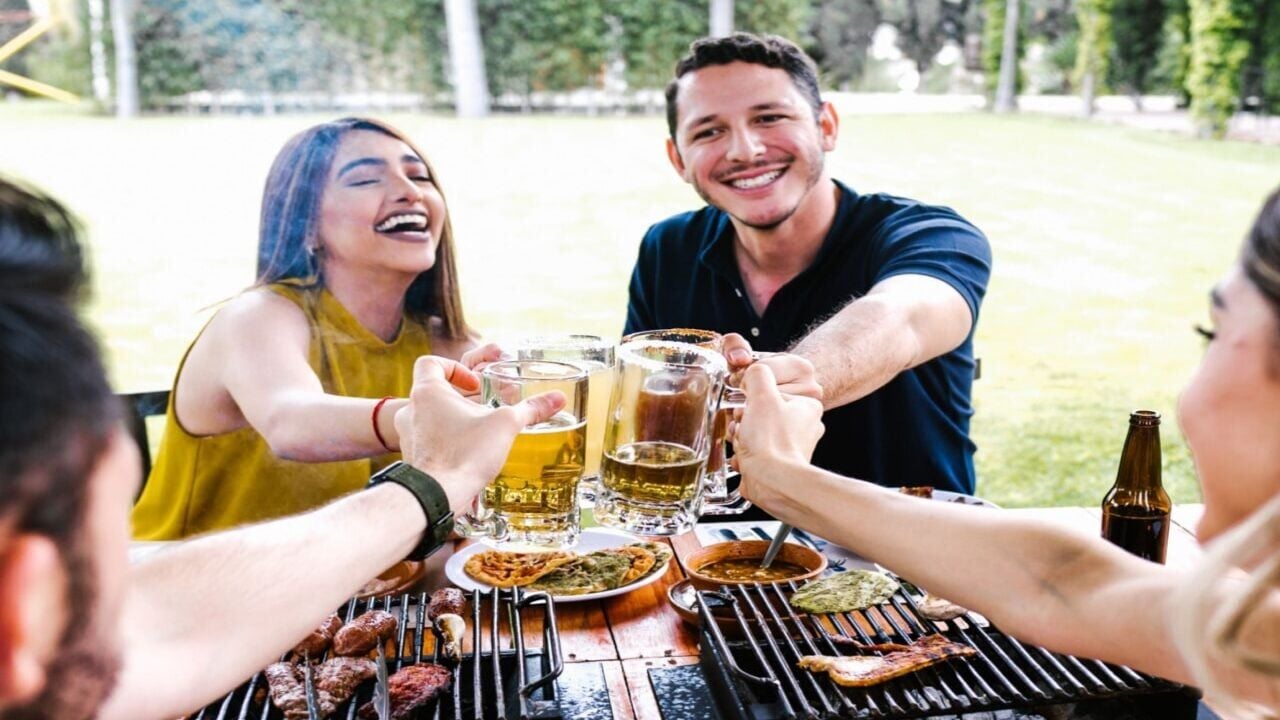The latest numbers from IWSR Drinks Market Analysis indicate that the market for non-alcoholic beverages will grow by more than 25% between now and 2026 in the United States.
Drinking establishments such as bars and pubs have offered a space for communities to socialize for thousands of years, and it’s normal for these places to serve alcoholic beverages. Those after the same experience without the alcohol will be hard-pressed to find anything suitable – until now. Dry bars provide a safe and enjoyable space for individuals to socialize without the pressure to consume alcohol.
While many bars offer non-alcoholic options, many sober, curious individuals, particularly from among both Gen Z and millenials, have sought spaces utterly devoid of hard spirits. These establishments provide a fresh option compared to regular bars, focusing on elegant drinks, mocktails, and other non-alcoholic drinks.
Sober Curious Movement
While Dry January is an initiative aimed at consumers who may not realize the effects of excessive alcohol on their health, the Sober Curious movement takes it one step further, encouraging people to give up alcohol altogether. However, it’s important to note that being “sober curious” doesn’t mean complete abstinence. It simply encourages people to be conscious of their decision to drink and the effects that it may have.
The term “sober curious” appears to have been penned by British author Ruby Warrington, who published a book of the same name in 2018. The text appeals to readers who may be questioning their relationship with alcohol. “S ober Curious demonstrates how alcohol is a weak imitation of the joy, inspiration, confidence, connection, and overall sense of aliveness that can only be generated from within,” says Warrington.
Health and Wellness Trends
The growing awareness of what alcohol does to the brain and body seems to have inspired many to be more conscious about how they treat their bodies and what goes into them. Depending on how much alcohol you consume, giving up or reducing consumption has multiple benefits, such as lowering blood pressure, triglyceride levels, and the risk of heart failure.
Suppose heavy alcohol intake has damaged your liver. In that case, reducing can eventually help repair and regenerate the liver, countering fatty liver and cirrhosis. Additionally, it aids weight loss, improves sleep, and boosts the body’s immune system. Alcohol dependence can negatively impact cognitive functions, memory, and motor skills.
Inclusive Social Spaces
Traditionally, if you’re in an establishment that serves alcohol, the pressure to drink from both bar staff and friends can choose to say ‘no’ is challenging. Not only that, non-drinking patrons may feel ostracised for their choices. However, dry bars are changing all that by offering the same atmosphere, entertainment, and a range of non-alcoholic beverages.
These bars benefit those following a sober curious lifestyle and recovering alcoholics who want a space to socialize without being tempted by the drug.
In some cases, these establishments often even more, centering on fostering friendships and mental wellness. Dream House Lounge in New Orleans, for example, was started by Dr. David Wallace and offers cocktails, an oxygen bar, and a variety of yoga and meditation classes.
Historic Dry Bars
While the idea of a dry bar may seem new, similar establishments were part of the Temperance Movement in the late 19th century. Hotels that offered an experience devoid of alcohol and prestigious coffee palaces existed for people who wanted to avoid being surrounded by intoxicated patrons. This movement eventually became Prohibition in the 1920s, encouraging various illegal underground establishments. That’s where the sober curious movement is different – it’s a choice many choose to follow rather than a law.
What Does This Mean for the Alcohol Marketplace?
Rather than competition, this is an opportunity for traditional alcoholic producers to tap into a thriving market. Expanding their product range to include zero and low-proof offerings will appeal to the sober curious and health-conscious who still want to experience the taste without the effects.
President of Go Brewing, Joe Chura, started his zero-proof craft beer brewery after seeing his health deteriorating, and making the decision to stop drinking inspired him to create his drinks. The thriving Chicago establishment offers a variety of beers and stouts and feels exactly like your average craft brewery. “You want to grab drinks with friends. You don’t want to wake up feeling bad. And the two shouldn’t be mutually exclusive,” he says.
Where Are Dry Bars Popping Up?
Dry bars are appearing all over the states as the sober movement grows. The following establishments are a sample of offerings across the states.
It’s no surprise that the sprawling metropolis of New York City has an extensive range of locations, including popular bars like Hekate in the East Village and Sèchey in the West Village, which offer a welcoming atmosphere and a range of beverages, with the latter also providing over 75 non-alcoholic brands for you to take home if you choose.
Austin, TX, has Dear Dry Drinkery and Sans Bar, while Houston has Sipple. In San Francisco, you’ll find Ocean Beach Cafe, a non-alcoholic bar located a block from Ocean Beach. New Orleans, synonymous with partying and drinking, has its own Dream House Lounge for those wanting an alternative. Zilch in Atlanta, GA, offers zero-proof cocktails parties, and various wellness events.
Philadelphia, PA, is home to Volstead, which serves mocktails and a full menu. Soft Spirits is one of many non-alcoholic bottle shops offering Los Angeles wines, beers, and spirits.
In some locations, the health and wellness movement has more of a hold over citizens than others, and you would expect more dry bars. Still, the considerable growth of the sober curious movement has meant that these types of bars are popping up in places all over America – and you can expect to find them worldwide. As the trend continues to grow, you can expect to see more of this type of establishment appearing near you in the future.
This article was produced and syndicated by Wealth of Geeks.


